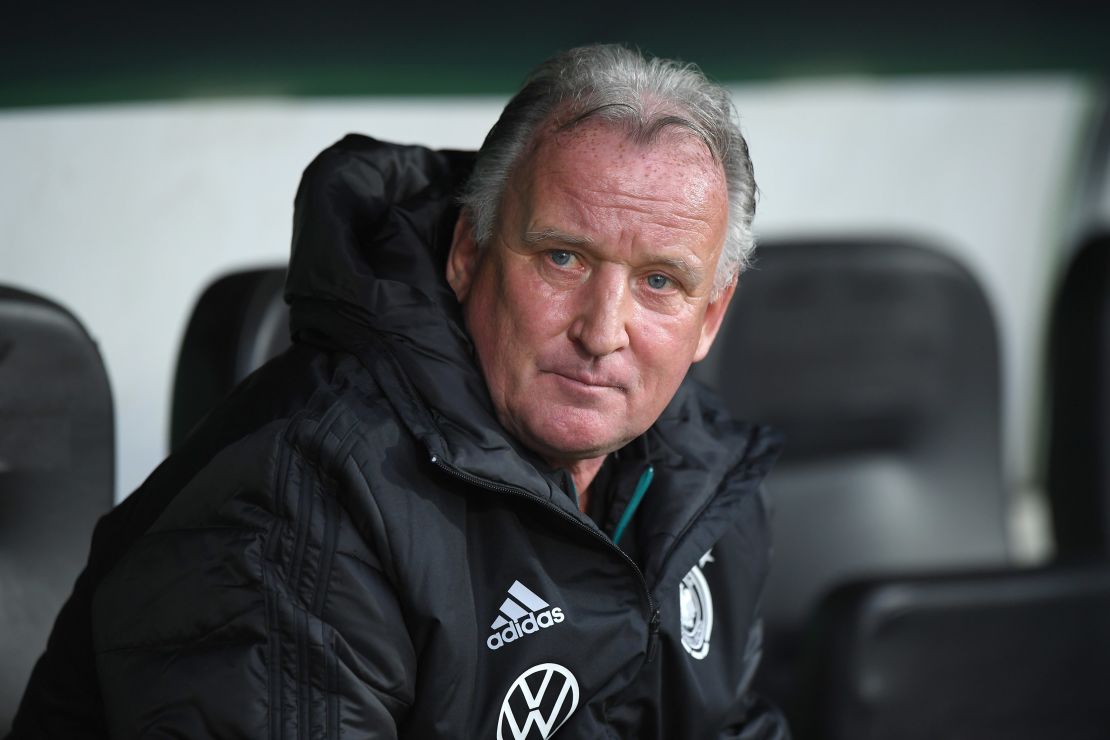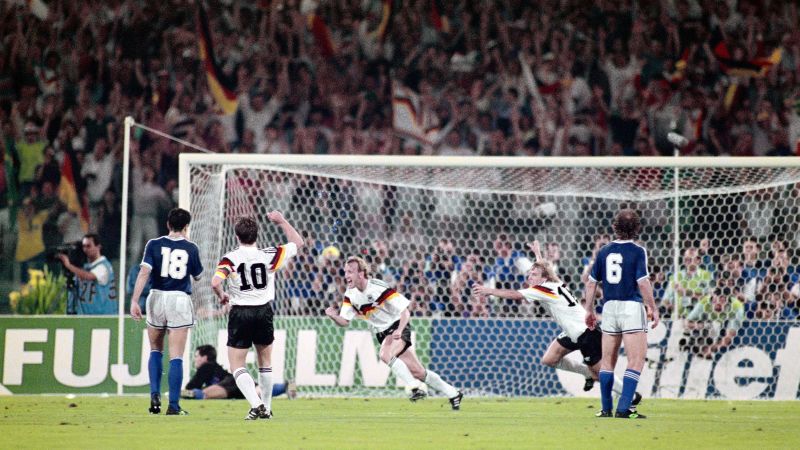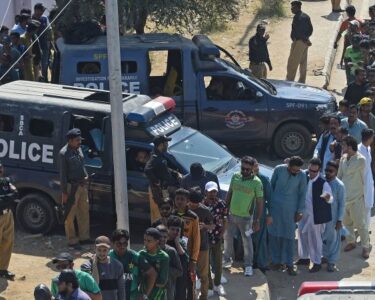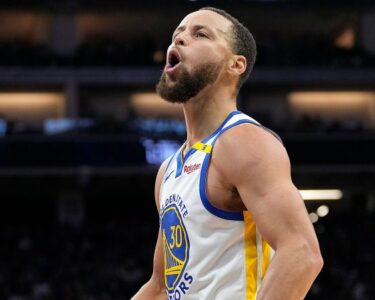CNN
—
Described as having “nerves of steel,” Andreas Brehme – whose penalty kick in the 1990 World Cup final led West Germany to victory – has died aged 63, his former team Bayern Munich announced on X, formerly known as Twitter, on Tuesday.
No cause of death was given.
Brehme had great success at both club and international level but was written into soccer folklore when he scored an 85th-minute penalty against Argentina in Rome to seal West Germany’s third World Cup in its 1-0 win. Later that year, a unified German soccer team was formed following the country’s unification.
“Even if the [awarding of the] penalty was dubious …. we deserved to become world champions,” Brehme told FIFA in an interview in 2017.
In an interview with FourFourTwo magazine in 2022, Brehme said he wasn’t a believer in practicing taking penalties.
“You can’t practice. Franz Beckenbauer [West Germany’s coach at the 1990 World Cup] used to tell us you could, but I said that wasn’t true as taking one in front of 60,000 fans is totally different,” Brehme told FourFourTwo. “I believe Germans are just good at compartmentalizing – there’s pressure, but it’s one action that must be treated as such.
“We never really had a first choice [penalty taker],” added Brehme in his interview with FourFourTwo.
“There was myself, [Rudi] Völler and [Lothar] Matthäus, and we usually played it by ear depending on who felt best about taking it. Lothar didn’t fancy it [in the 1990 World Cup final]. I didn’t mind who took it, so offered. It might surprise people, but I wasn’t nervous at all as I ran up.”
Brehme won the Bundesliga title on two occasions – once apiece with Bundesliga clubs Bayern Munich and FC Kaiserslautern – as well as the Italian Serie A title with Inter Milan in 1989.
“Andreas Brehme is one of the greatest and best soccer players in German history. German soccer owes him an infinite amount,” German Football Association (DFB) president Bernd Neuendorf said in a statement paying tribute to Brehme.
“Alongside Mario Götze, Gerd Müller and Helmut Rahn, he was one of the four German players who shot our national team to the World Cup title,” added Neuendorf.
“His nerves of steel and strength in tackles, his two-footedness, his crosses, his passes, his commitment – all that made him stand out, all that gave us so much joy and so many great moments.
“I also remember an honest, sincere, heartfelt, great person. Someone who was always there to help others. We will never forget the footballer and the person Andreas Brehme – we will miss him very much.”
Brehme was capable of playing a number of different positions on the left side of the pitch, earning 86 international caps, scoring eight goals. He was part of the team which finished runner-up in the 1986 World Cup and runner-up in the 1992 European Championships.
Known for his knack of scoring on the biggest stage, Brehme scored five of his eight international goals at World Cups or Euros, three coming in the World Cup semifinal or final stage.
“I can’t believe it,” said Völler, currently the director of Germany’s national team and long-time friend and teammate of Brehme. “The news of Andreas’ sudden death saddens me immensely. Andy was our World Cup hero, but for me he was much more than that – he was my close friend and companion to this day.
“I will miss his wonderful zest for life. My thoughts are now with his bereaved family, his friends and especially his two sons. I wish them all much strength.”
During his club career, Brehme came through the ranks at Kaiserslautern before moving to Bayern Munich where he would win his first league title in 1987.
After two seasons with the Bavarian giants, Brehme moved to Italy and Internazionale where he formed a key cog in the German contingent at the Nerazzurri, alongside Matthäus and Jürgen Klinsmann.
Together, they won the Italian league title in 1989 and the UEFA Cup two years later. “A great player, a real Interista. Ciao Andi, forever a legend,” Inter wrote on X.
After a one-year stint with Real Zaragoza in Spain, he returned to Kaiserslautern where he was part of the ‘miracle of the Betzenberg’ under manager Otto Rehhagel, winning the German Cup in 1996 as a relegated team and then becoming German champions two years later as a promoted team.

After retiring, Brehme turned his hand to coaching, leading Kaiserslautern to the semifinals of the UEFA Cup in 2001.
“He wore the Red Devils’ shirt for a total of 10 years and became German champion and German Cup winner with FCK,” Kaiserslautern wrote on X.
“In 1990 he fired the German national team to the World Cup title with his penalty and became a football legend. The FCK family is in deep mourning.”






